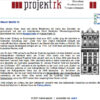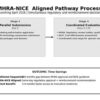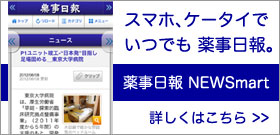マーク・レイブン氏
(イーストウエストコンサルティング株式会社 コンサルタント)
再度、このコラムに投稿する機会を与えて下さった御社に心からの感謝の念を表明したいと思います。
先月は日本の医薬品市場において次第に増加の一途を辿る統合プロセス、そして関連した大手企業間でのM&Aについてお話し致しました。この市場統合は、競争が次第と激しさを増していく今日のマーケットにおいては、中小企業は苦境にあえいでおり、最強の企業のみが生き残れることをますます示唆しています。この状況はファイザー、アステラスその他の製薬会社による大規模なレイオフ (解雇) につながり、また以前は終身雇用の安定供給企業と思われていた会社においてさえ組織変更・リストラ等が施行されるようになりました。
今後数年間、国内市場にサブプライムローンに端を発する信用危機問題の影響が浸透してくるにつれ、また大手製薬会社の主要製品の特許が満了となるにつれて、この統合プロセスは続くものと想定されます。これにより多くのプロフェッショナルの方々がこの数年間のうちに、(解雇、又は変動する環境において自身のポテンシャルを最大限に生かしたいという希望のため) 転職を行うに至るでしょう。
日本市場における会社統合についてのトピックを語る際には、留意すべきいくつかの重要な傾向があります。 一つは日本の製薬業界のプロフェッショナルの方々は転職という考えに対しだんだん寛容的になって来ており、自分自身の市場価値や彼らが担当する専門エリアでの人材需要を知りたがっているということです。
二つ目の傾向は、彼らは自身のキャリアを戦略的に構築することにより興味を持つようになり、定期的に私のようなヘッドハンターとの対話を行い、転職することにより彼らのキャリアを伸ばせるような機会を見つけた場合は、彼らは実際に転職するということです。
全ては自己の潜在能力を最大限に引き出すためなのです。意欲的な製薬業界のプロフェッショナルにとって、転職市場の知識は必要不可欠であり、情報はまさに力であるのです。
この状況下で、今回私は許容される転職回数は何度までかというトピックについてお話ししたいと思います。勿論これはやや主観的な意見であり、また職種・業種によっても見解に違いが出てくることでしょう。しかし人々が積極的に自身のキャリアを管理することが一般的になるにつれて、以下のことを心に留めておかれることが大事かと思います。
多くの採用企業にとって、過去の転職はポジティブに捉えられます。転職することにより候補者は変化を恐れず、また新しい環境にも順応する事が出来、そして積極的にキャリアを創出することに自身を持つことが出来るからです。これらの特徴はビジネスにおいては良い特性と考えられています。実際に、若し40歳の候補者がキャリアの全てを一つの会社で過ごした場合、転職を一切行っていないという事実は、転職市場ではマイナスと考えられる場合があります。というのもその方はその会社の一部と化してしまい、たった一つのビジネススタイル、一つの社風しか知らないと思われるからです。
また別の極端な例として、過去30年のキャリアの中で14回も転職を行って来られた方のケースを考えて見ましょう。採用企業の多くは、これだけ多くの転職を行って来た方は、自分の役割を忠実に果たすことが出来ない方だと考えるに至るでしょう。我々ヘッドハンターはこのような方をジョブホッパー(job hopper、職を次々に変える人) と呼びます。
結論を言いますと、これらの2つの両極端なケースの間の何処かに中庸点があると言えましょう。何れにしても大事なことは、情報は常に役立つということです。あなたのキャリアを戦略的に話し合うことで何か失うものがあるでしょうか?あなたの会社の競合他社と折を見つけて面接を行い、信頼の置けるヘッドハンターと定期的に連絡を取り合うことも、プロフェッショナルとしての貴方にきっと役に立つことでしょう。
あなたのキャリアゴールや潜在能力等についての無料且つ秘密厳守のコンサルテーションをご希望の場合は、是非どうかお気軽にご連絡下さい (raven@ewc.co.jp)。
Information is power
Once again, many thanks to Nippro Japan for the invitation to contribute to this column.
Last month we spoke about the increasing consolidation in the Japanese Pharmaceutical market and the associated mergers and acquisitions between many of the big names. This consolidation suggests increasingly that the smaller companies are struggling and only the strong companies can survive in this increasingly competitive market. The result of this was massive layoffs by Pfizer, Astellas and others, and increased instability and structural change among companies which were previously regarded as stable lifetime employers.
Over the next few years, as the market feels the trickle down effects of the sub prime credit crunch and as the Big Pharma companies patents expire on many of their blockbuster products, we can only be assumed that this consolidation will continue. This, in turn will lead to many professionals seeking to change their companies over the next few years (whether as a result of layoffs, or a desire to maximize their potential in the face of changing circumstances)..
There are several important trends to be aware of when speaking on this topic in the context of the Japanese market; one is that Japanese Pharmaceutical professionals are increasingly open – minded to opportunities – they want to know their market value and they want to be kept aware of movements in their area.
The second change is that Japanese Pharmaceutical professionals are becoming more aggressive to develop their careers strategically; they want to keep a regular dialogue with headhunters like me, and if they see an opportunity to develop their careers by changing between companies, they will. It’s all about maximizing potential. For the ambitious Japanese Pharmaceutical professional, knowledge of the job market is crucial, and information is power.
In the context of this, I want to discuss today the issue of how many times is acceptable for a person to change companies during his career. Obviously, this issue is somewhat subjective and opinions will differ across professions and across industries. However, as people become more open minded to manage their careers proactively, here are some general points to be aware of.
To many employers, career change in the past is a positive thing; It shows that the candidate is proactive, that he is not afraid of change, and that he can adapt to new environments. These characteristics are regarded as positive qualities in business. In fact, if a candidate is 40 years old but has only worked at one company during his entire career, the fact that he has NOT changed jobs before in his lifetime will considered a disadvantage because he will be ‘institutionalised’ and only familiar with one style of business nd one corporate culture.
On the other hand, we must consider the case of the candidate who has worked at 15 different companies during his 30 year career. To most employers, changing jobs this many times will serve to convince potential employers that he cannot ‘stick’ to a role and is what we headhunters call a ‘job hopper’.
To conclude, Somewhere between these 2 examples there is a happy medium, but the important lesson here is that information never hurts. There is nothing to lose by discussing your career strategically. To interview with competitor companies every so often, and to keep a regular dialogue with a trusted headhunter, can only be a professional advantage.
For a free, and confidential, consultation about your career objectives and potential, please feel free to contact me directly – raven@ewc.co.jp
連載 医療業界の転職マーケット
- 第3回 たった1回、30分のミーティングから生まれる無限の可能性
- 執筆者紹介 マット・カー氏(イーストウエストコンサルティング株式会社 コンサルタント)
- 第2回 情報は力なり
- 執筆者紹介 マーク・レイブン氏(イーストウエストコンサルティング株式会社 コンサルタント)
- 第1回 はじめに
- 執筆者紹介 アントニオ・ディクリスト氏(イーストウエストコンサルティング株式会社 ヘルスケア・シニアマネージャー)
- 「医療業界の転職マーケット」連載開始!

















